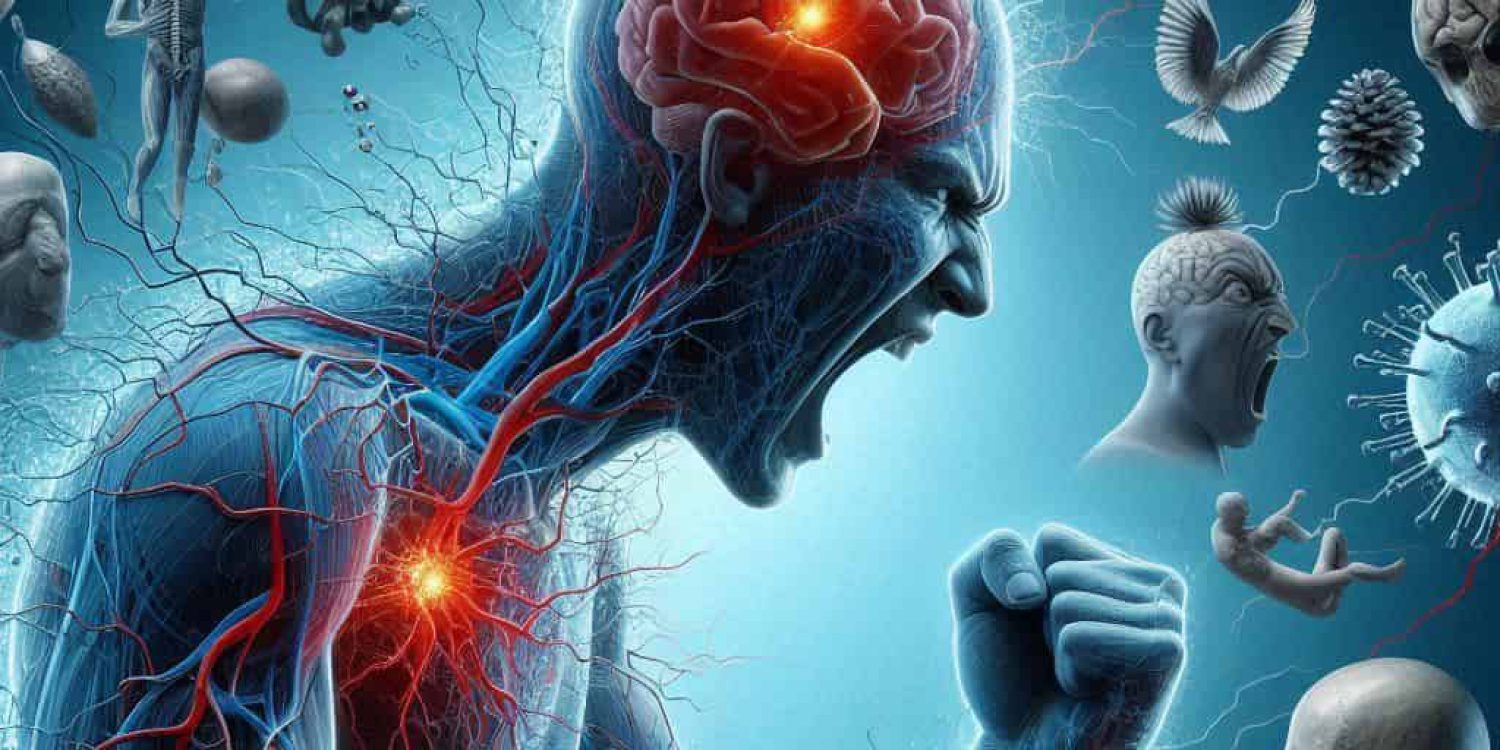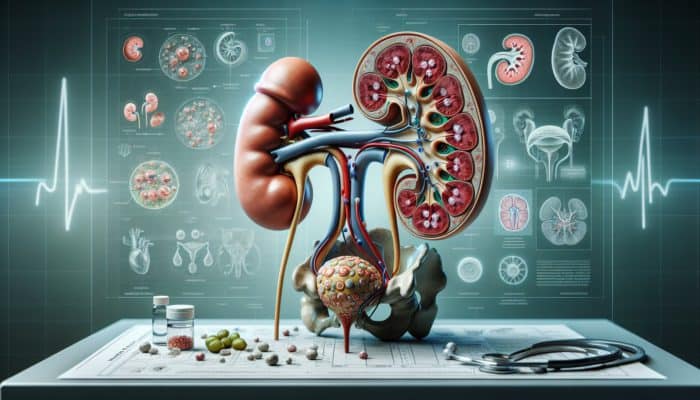Mastering Anger: The Benefits of Therapy
Anger, a typical and generally good emotion, is a feeling that everyone experiences occasionally. It may be a reaction to feeling intimidated, attacked, or frustrated, or it may be a reaction to being harmed, betrayed, or insulted.
Recognising that being angry is not inherently wrong or harmful is critical. However, how we express and regulate our anger has a tremendous impact on both our mental and physical health. Anger can be expressed in various forms, including impatience, annoyance, resentment, and wrath.
Physical symptoms like a racing heart are also possible, as well as high blood pressure and muscle tension. When anger is not controlled, it can escalate to harmful behaviour and negatively impact relationships, careers, and overall well-being. Recognising the indicators of anger and understanding the underlying causes is critical for effectively managing this powerful emotion.
Various circumstances can provoke anger, including external events, interior thoughts and feelings, and physiological reactions. Understanding these triggers can help people understand their anger and build more effective coping techniques. Individuals who explore feelings of anger can learn to recognise warning signs and take proactive actions to moderate their emotions more productively, leading to personal growth and self-improvement.
Critical Points to Remember
- Anger is a natural emotion that can become problematic when uncontrolled
- Uncontrolled anger can have negative impacts on mental and physical health
- Anger management therapy can help individuals learn to manage their anger effectively
- Techniques and strategies taught in anger management therapy include deep breathing and communication skills
- Therapy helps individuals identify triggers and underlying issues that contribute to their anger
 The Impact of Uncontrolled Anger on Mental and Physical Health
The Impact of Uncontrolled Anger on Mental and Physical Health
The Physical Consequences of Uncontrolled Anger
A growing body of evidence links chronic anger to serious health issues, including hypertension, cardiovascular disease, impaired immunological function, and an increased risk of stroke. Irritable bowel syndrome, sleeplessness, and tension headaches are all symptoms of extreme anger that are not under control.
The Mental Health Toll of Uncontrolled Anger
Uncontrolled anger can have a severe impact on both physical and mental health. Persistent anger can lead to the development of anxiety disorders, depression, and substance misuse problems. Additionally, it can disrupt interpersonal dynamics, as unrestrained anger frequently ends in conflict and estrangement from others.
Seeking Help and Learning Effective Anger Management Techniques
The effects of uncontrolled anger on mental and physical health emphasise the significance of obtaining assistance and practising appropriate anger management skills. Individuals must recognise the negative impact of unrestrained anger on their overall well-being. Understanding the consequences of chronic anger on mental and physical health might drive people to seek tools and support for dealing with their anger issues healthily and constructively.
The Benefits of Anger Management Therapy
Rage management therapy offers several advantages for individuals struggling with uncontrollable rage. One key benefit is the opportunity to delve into the underlying causes of anger and learn effective coping strategies. In therapy, individuals might delve into the origins of their anger, gaining a deeper understanding of their triggers and responses.
This understanding is a crucial step towards managing anger more effectively.
In therapy, patients can find a nurturing environment where they can examine their emotions and develop healthier methods to express and manage their anger. In addition to gaining insight into their feelings, people can learn valuable communication skills that will help them strengthen their relationships and lessen conflict. Anger management therapy can also give people a sense of empowerment and control over their emotions, improving overall well-being.
Rage management therapy can also help people break the pattern of detrimental behaviours that frequently accompany uncontrolled rage. Individuals who adopt appropriate coping skills and stress management techniques can lessen the damaging impact of rage on their mental and physical health. Overall, anger management treatment provides several benefits and can impact a person's life in the long term.
 Techniques and Strategies Taught in Anger Management Therapy
Techniques and Strategies Taught in Anger Management Therapy
Anger management therapy teaches clients several tactics and strategies for properly managing their anger. Deep breathing exercises are a typical method taught in treatment, which can help people calm their physiological responses to anger while also reducing tension and stress levels. Another technique commonly taught in anger management treatment is mindfulness meditation, which encourages people to focus on the present moment and become more aware of their thoughts and feelings.
Cognitive restructuring is another essential method taught in anger management treatment. It entails questioning negative thought patterns and replacing them with more rational and balanced thinking. This can help people redefine their perspectives of situations that elicit anger and build more adaptive reactions. Additionally, problem-solving skills are commonly taught in therapy to assist individuals in tackling the root causes of their anger.
Furthermore, assertiveness training is often included in anger management therapy to help people articulate their demands and boundaries healthily and respectfully. Individuals who acquire these tactics and strategies in treatment can build a comprehensive set of tools for adequately managing their anger in various settings, making them more adaptable in different situations.
How Therapy Helps Individuals Identify Triggers and Underlying Issues
Therapy allows individuals to discover the triggers and underlying issues that contribute to their anger. Individuals can obtain insight into the exact situations, thoughts, and emotions that trigger angry sentiments by exploring and reflecting on them. Individuals who understand these triggers might acquire more self-awareness and learn to recognise warning signs before they spiral into uncontrollable fury.
Therapy not only helps individuals identify triggers but also provides a path to address the underlying issues that fuel their anger. This could involve exploring past events, traumas, or learned behaviours influencing their reactions. By addressing these issues, individuals can work towards overcoming deep-seated emotional traumas, bringing peace and relief.
Therapy provides a safe space for people to address their triggers and underlying issues without being judged or criticised. This process of self-discovery may be robust, giving people the tools they need to control their anger healthily and constructively.
The Role of Cognitive Behavioral Therapy in Anger Management
Challenging Irrational Beliefs
CBT aims to challenge illogical beliefs and replace them with more rational, balanced thinking. Individuals who address these cognitive distortions can build healthier perspectives on situations that cause them to become angry.
Developing Effective Coping Strategies
CBT not only addresses cognitive distortions but also assists individuals in developing practical coping skills for anger management. These could include learning relaxation techniques, assertiveness training, and the ability to solve problems to deal with the root causes of anger. CBT gives people practical techniques they can use in everyday settings to manage their anger better.
Increasing Self-Awareness
Furthermore, CBT assists individuals in developing better self-awareness by helping them understand the links between their ideas, feelings, and behaviours. Individuals who understand these linkages can have more control over their reactions to events that cause them to become angry. CBT is essential for helping people gain the skills to regulate their anger and improve their overall well-being effectively.
 Maintaining Progress: Continuing Support and Resources After Therapy
Maintaining Progress: Continuing Support and Resources After Therapy
Individuals who have completed anger management therapy should continue to seek assistance and use services to sustain their development. To continue working on anger management, they may attend support groups or seek individual counselling. Support groups provide a sense of camaraderie and understanding, fostering a feeling of connection and reducing isolation as they deal with the difficulties of managing their anger.
In addition to ongoing support, individuals can benefit from tools like self-help books, online forums, and mobile apps to help them manage their anger. These resources give individuals additional tools and ways to practise healthy coping outside treatment sessions. Furthermore, continuing progress following therapy may necessitate making lifestyle adjustments that promote overall well-being, such as frequent exercise, healthy eating habits, appropriate sleep, and stress-reduction activities.
Individuals who incorporate these lifestyle adjustments into everyday routines can lessen their chances of experiencing uncontrollable anger. Recognising the emotion of rage is critical for successfully controlling this powerful emotion. Uncontrolled anger can have serious consequences for mental and physical health, emphasising the significance of obtaining help through anger management therapy. This information makes the audience feel informed and aware.
Therapy plays a crucial role in providing individuals with uncontrolled anger with various benefits. It helps them gain insight into triggers and underlying issues, learn beneficial tactics and strategies, and empower them to continue progress with continuous support and resources. This equips them with the knowledge and tools to manage their anger effectively, leading to healthier coping mechanisms and improved overall well-being.
Brought To You By:
References
- Teen Addiction Treatment Ames Iowa | Ember Recovery. https://emberrecovery.org/teen-addiction-treatment-in-iowa/
- Why Men Should Not Cover Up Their Emotional Distress | TheBeardMag. https://www.thebeardmag.com/lifestyle/health/why-men-should-not-cover-up-their-emotional-distress/


























27 Comments
Your exploration of anger as a natural emotion highlights the importance of self-awareness in its management. I find it intriguing how societal norms often stigmatize anger, labeling it as a negative trait rather than acknowledging its potential as a signal for change or self-advocacy.
You raise a compelling point about how societal norms shape our understanding of anger. It’s interesting to consider how anger is often seen in a negative light, almost as if it were a flaw in our character. This perception can lead individuals to suppress what is a completely natural and, at times, essential emotion. I think it’s crucial to view anger not just as a reaction, but also as a kind of internal alert system, signaling when something feels unjust or when our boundaries are being crossed.
Thank you for your thoughtful insights! If you’re interested in exploring more about the transformative power of emotions like anger, check out this resource that delves deeper into harnessing them for positive change.
https://mcrtherapies.co.uk/ig
You raise a great point about the societal stigma surrounding anger. It’s fascinating how we often associate this emotion solely with negativity, when it can actually serve as a valuable signal. When we feel anger, it’s not just an isolated response; it can highlight underlying issues that require our attention. For example, feeling angry about an injustice or a personal boundary being crossed can motivate us to take action.
Thank you for your thoughtful comment! If you’re interested in diving deeper into harnessing anger as a catalyst for positive change, check out this resource that explores practical strategies for embracing and channeling this powerful emotion.
https://mcrtherapies.co.uk/fb
Your observation about societal norms surrounding anger is thought-provoking and spot-on. It’s fascinating how our culture often perceives anger as something to be suppressed or hidden away, rather than something that can be expressed in healthy ways. When anger is labeled negatively, it becomes easy for individuals to misunderstand the emotion itself, leading to a cycle of internal conflict and avoidance.
Absolutely, it’s crucial to rethink our perception of anger. If you’re interested in diving deeper into this topic and discovering practical strategies for harnessing anger constructively, check out this resource!
https://mcrtherapies.co.uk/ig
Isn’t it ironic how anger can sometimes feel like that overenthusiastic friend who shows up uninvited to the party? At first, they stir things up a bit, but before long, they’re knocking over drinks and debating politics with your elderly aunt. I’ve been in situations where my anger was like that—suddenly there, and I’m left wondering if I should have just turned the music down instead of setting off a full-on rager.
I can totally relate to that analogy—anger really does have that unpredictable quality, doesn’t it? It bursts onto the scene with so much energy, and in the moment, it might seem like it’s adding to the excitement. But then, like you said, it can lead to some chaos that spills over into conversations you’d rather avoid.
Speaking of unexpected guests, navigating social situations when anxiety crashes the party can be just as chaotic, and I stumbled upon some insights that really help make sense of it all.
‘Social Anxiety Disorder – Treatment Options’
https://mcrtherapies.co.uk/social-anxiety-disorder-treatment-options/.
You nailed it with that analogy—anger really does have a way of crashing the party, doesn’t it? It’s like a firework; it lights up the sky for a moment but then leaves a mess behind. I get where you’re coming from with anxiety too. Social situations can feel overwhelming when anxiety decides to join in uninvited.
Absolutely, navigating those social dynamics can be quite a challenge! If you’re looking for practical strategies to better manage anxiety in social settings, I found this resource really insightful: [Social Anxiety Disorder – Treatment Options](https://mcrtherapies.co.uk/social-anxiety-disorder-treatment-options/). It might offer some helpful perspectives!
https://mcrtherapies.co.uk/yt
You’ve captured that feeling perfectly—anger really can feel like that overenthusiastic friend who doesn’t know when to read the room. It often weighs in at the most inconvenient moments, almost like a reflex when we’re pushed too far. I’ve definitely had my share of times when that “party crasher” took over, and it’s often led to some pretty messy aftermath.
It’s so true how anger can sneak up on us like that, isn’t it? It’s almost as if it has its own personality, just waiting to burst out when we least expect it. That “party crasher” vibe makes it all the more frustrating, especially in situations where we think we’re being rational. I’ve noticed in my own life that it often surfaces when I’m overwhelmed or stressed, and it makes me realize how intertwined our emotions can be.
It’s such an interesting point you raise about anger feeling like that “overenthusiastic friend.” It really does sneak up on us in those most inconvenient moments, doesn’t it? I remember a time when I was in a heated discussion with a friend about something trivial. Out of nowhere, that “party crasher” version of anger showed up, and what should have been a lighthearted exchange turned into a full-blown argument.
You’ve really nailed that comparison. Anger does have this way of crashing into our lives, much like that friend who, without a thought, shows up and turns everything upside down. In those moments, it can feel like you’re in a tug-of-war between wanting to keep the peace and the raw energy bubbling within you. It’s striking how quickly an emotional response can shift the atmosphere—one minute you’re enjoying the evening, and the next, you’re apologizing for the chaos.
Your exploration of anger as both a common and complex emotion raises a host of intriguing questions about how we process and express this feeling in different contexts. It strikes me how often we overlook the potential benefits of anger—recognizing it can serve as a powerful catalyst for change. For instance, in the realm of social justice, feelings of anger can mobilize communities and individuals to address systemic injustices, prompting critical dialogues that challenge the status quo. So, while your emphasis on the importance of managing anger is certainly valid, I wonder if we should also consider the productive aspects of this emotion that drive societal growth.
You’ve touched on a really important aspect of anger that often gets overlooked in discussions about emotions. It’s fascinating how this complex feeling can simultaneously create chaos and push for meaningful change. I agree that anger can indeed serve as a catalyst for social justice. Take, for instance, the movements sparked by anger over systemic injustices; they often shine a light on issues that might otherwise remain in the shadows.
It’s interesting to think about how exploring emotions like anger can lead us to consider other feelings we might be grappling with, like social anxiety; I recently came across some insights on treatment options that could be really helpful for anyone navigating that space.
‘Social Anxiety Disorder – Treatment Options’
https://mcrtherapies.co.uk/social-anxiety-disorder-treatment-options/.
You bring up an interesting perspective on the dual nature of anger. It’s like this powerful force that can fuel both destruction and progress, depending on how we channel it. The way you mentioned movements ignited by anger really resonates. It’s compelling how outrage over injustice can rally many together to create real change, drawing attention to critical issues that might otherwise go unnoticed.
“Absolutely, exploring our emotions can really open the door to understanding how they interconnect. If you’re interested, here’s a resource that delves into treatment options for social anxiety—worth checking out!”
https://mcrtherapies.co.uk/ig
You’ve highlighted a crucial aspect of anger that often doesn’t get enough attention. It’s easy to focus solely on the challenges it brings—how it can lead to conflict or personal turmoil—but recognizing anger as a catalyst for change opens up an important dialogue.
Absolutely! If you’re interested in exploring more about the dual nature of emotions like anger—both their challenges and their potential for inspiring change—I invite you to check out this insightful piece that delves deeper into the subject.
https://mcrtherapies.co.uk/yt
This topic on anger really resonates with me, especially how it highlights our emotional landscape and the role of therapy in navigating these feelings. I’ve often grappled with my own anger, recognizing that it can indeed stem from deeper issues. For example, I once realized that my impatience in everyday situations was often rooted in stress or feeling overwhelmed rather than the immediate trigger itself. It was eye-opening to understand how our environment and mental state feed into our anger responses.
It’s interesting how you connect your impatience to stress and feeling overwhelmed. The surface-level reactions we often have can mask the complicated emotional web underneath. A lot of people might brush off their anger as just a reaction to the immediate situation, but digging deeper reveals a lot about how we manage our day-to-day stressors.
“I’m glad to hear that this topic resonates with you! If you’re looking for more insights on managing anger and understanding its roots, check out this resource that dives deeper into the connection between our emotions and mental well-being.”
https://mcrtherapies.co.uk/ig
It’s true how our reactions can often be just the tip of the iceberg when it comes to understanding our emotions. I’ve found that taking a moment to reflect on what’s triggering my impatience or anger often reveals deeper frustrations or anxieties that I’ve been carrying around, sometimes without even realizing it.
This post really resonates with me. It’s so true that anger is often framed as a negative emotion, but recognizing it as a natural reaction can be a game-changer. I remember going through a phase where I felt perpetually angry, and it took a lot of introspection (and a good therapist) to figure out the root of those feelings.
I completely relate to your experience. Anger can feel so overwhelming at times, and it’s interesting how society often pushes us to suppress it rather than understanding it. I think what you mentioned about introspection is crucial; it’s like peeling back layers to get to the real source of that anger.
It’s true—anger can really take over if we don’t confront it. Society tends to frame anger negatively, almost as if feeling it makes us weak, which can lead to that instinct to bury it. But when we take a moment to really sit with it, as you’ve pointed out, we often find it’s a signal pointing us toward something deeper.
It’s so true how society often suggests that we should just brush anger aside, like it’s something we should be ashamed of. I’ve found that ignoring it can often lead to amplified feelings or, worse, turning it inward. It’s interesting that you brought up introspection; it really is about understanding ourselves better, isn’t it? For instance, I’ve been reflecting on some of my past experiences where anger was a response to feeling helpless or unheard.
It’s great to hear that the post resonated with you. Your experience with anger is something many people can relate to, yet we don’t often talk about it openly. It’s fascinating how society often treats anger as a villain rather than a part of the human experience. In reality, anger can serve as a signal—an important message about our boundaries, values, and needs.
I’m so glad to hear that my post resonated with you! If you’re interested in exploring more about understanding and channeling those feelings, check out this resource that dives deeper into emotional awareness and growth.
https://mcrtherapies.co.uk/ig
Your exploration of anger as a fundamental emotion resonates deeply with me, particularly regarding the importance of how we express and manage it. I’ve often found myself grappling with anger, especially in high-stress situations, whether it’s during a heated discussion at work or a misunderstanding with a loved one. It’s fascinating how, at times, I’ve recognized that my anger stems not just from the immediate trigger but from deeper feelings of vulnerability, frustration, or even fear of loss.
I can relate to what you’re saying about grappling with anger in those high-stress situations. It often feels like a multifaceted emotion, doesn’t it? When you mention how your anger sometimes roots itself in deeper feelings of vulnerability and fear of loss, it brings to mind a lot of the work researchers and psychologists have done on emotional intelligence.
I found this piece on social anxiety disorder really insightful, especially how it connects to our emotional responses and the underlying feelings that often drive our reactions, much like what you described about managing anger.
‘Social Anxiety Disorder – Treatment Options’
https://mcrtherapies.co.uk/social-anxiety-disorder-treatment-options/.
You hit the nail on the head with that multifaceted emotion bit. Anger is like that friend who shows up uninvited to a party and insists on telling everyone how you really feel about your ex. It’s a real show-stealer!
“Absolutely, the connection between our emotions is fascinating! If you’re interested in diving deeper into understanding social anxiety and its emotional roots, I highly recommend exploring this insightful resource on treatment options.”
https://mcrtherapies.co.uk/yt
It’s interesting how you describe your experiences with anger, especially in those high-stress moments. I think we can all relate to those situations where the intensity of our emotions reveals something deeper. It seems like anger often acts as a protective layer for feelings like vulnerability or fear. I’ve found that recognizing this can be a game-changer in how I approach conflicts, simply by taking a step back and trying to understand what’s really triggering me underneath the surface.